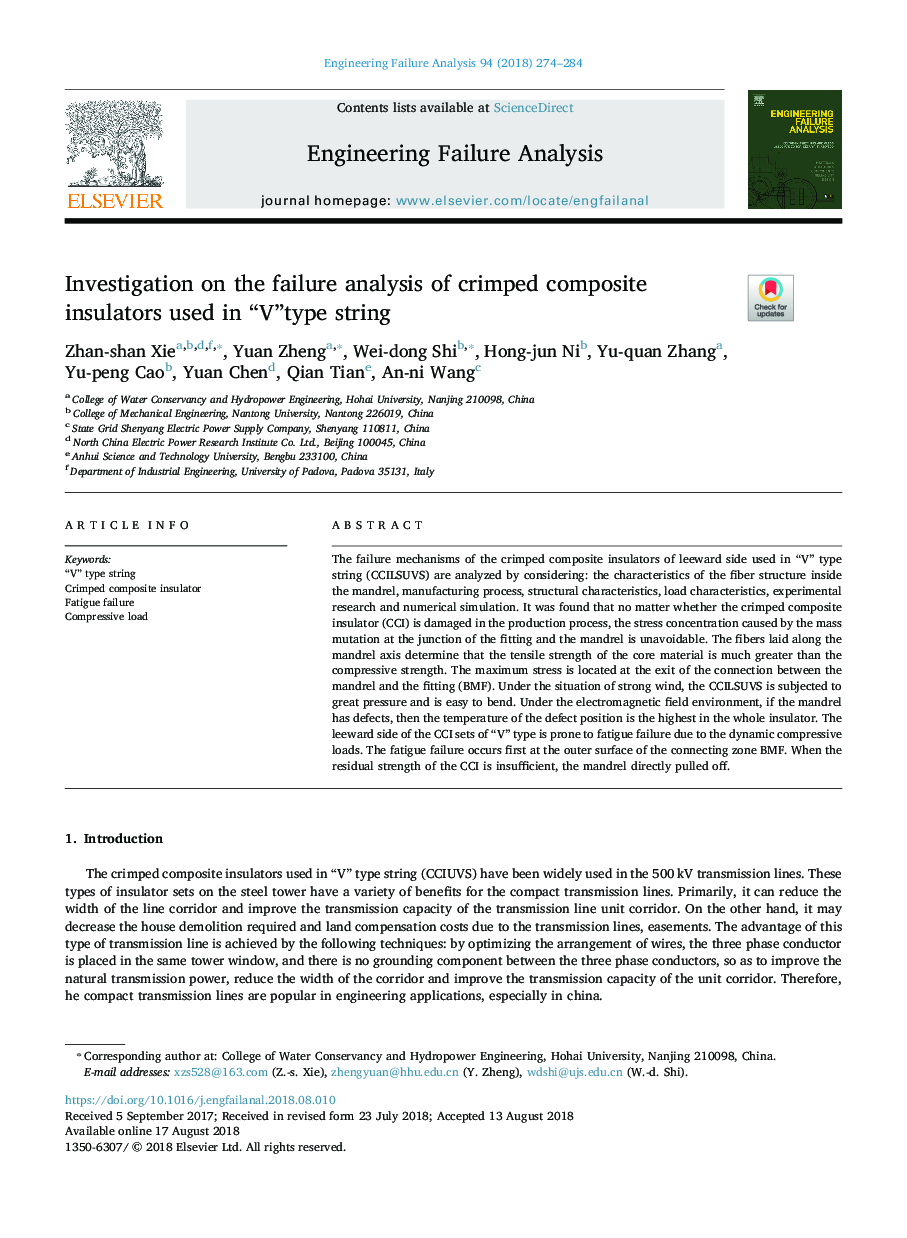| کد مقاله | کد نشریه | سال انتشار | مقاله انگلیسی | نسخه تمام متن |
|---|---|---|---|---|
| 11003851 | 1462932 | 2018 | 11 صفحه PDF | دانلود رایگان |
عنوان انگلیسی مقاله ISI
Investigation on the failure analysis of crimped composite insulators used in “V”type string
دانلود مقاله + سفارش ترجمه
دانلود مقاله ISI انگلیسی
رایگان برای ایرانیان
موضوعات مرتبط
مهندسی و علوم پایه
سایر رشته های مهندسی
مهندسی صنعتی و تولید
پیش نمایش صفحه اول مقاله

چکیده انگلیسی
The failure mechanisms of the crimped composite insulators of leeward side used in “V” type string (CCILSUVS) are analyzed by considering: the characteristics of the fiber structure inside the mandrel, manufacturing process, structural characteristics, load characteristics, experimental research and numerical simulation. It was found that no matter whether the crimped composite insulator (CCI) is damaged in the production process, the stress concentration caused by the mass mutation at the junction of the fitting and the mandrel is unavoidable. The fibers laid along the mandrel axis determine that the tensile strength of the core material is much greater than the compressive strength. The maximum stress is located at the exit of the connection between the mandrel and the fitting (BMF). Under the situation of strong wind, the CCILSUVS is subjected to great pressure and is easy to bend. Under the electromagnetic field environment, if the mandrel has defects, then the temperature of the defect position is the highest in the whole insulator. The leeward side of the CCI sets of “V” type is prone to fatigue failure due to the dynamic compressive loads. The fatigue failure occurs first at the outer surface of the connecting zone BMF. When the residual strength of the CCI is insufficient, the mandrel directly pulled off.
ناشر
Database: Elsevier - ScienceDirect (ساینس دایرکت)
Journal: Engineering Failure Analysis - Volume 94, December 2018, Pages 274-284
Journal: Engineering Failure Analysis - Volume 94, December 2018, Pages 274-284
نویسندگان
Zhan-shan Xie, Yuan Zheng, Wei-dong Shi, Hong-jun Ni, Yu-quan Zhang, Yu-peng Cao, Yuan Chen, Qian Tian, An-ni Wang,